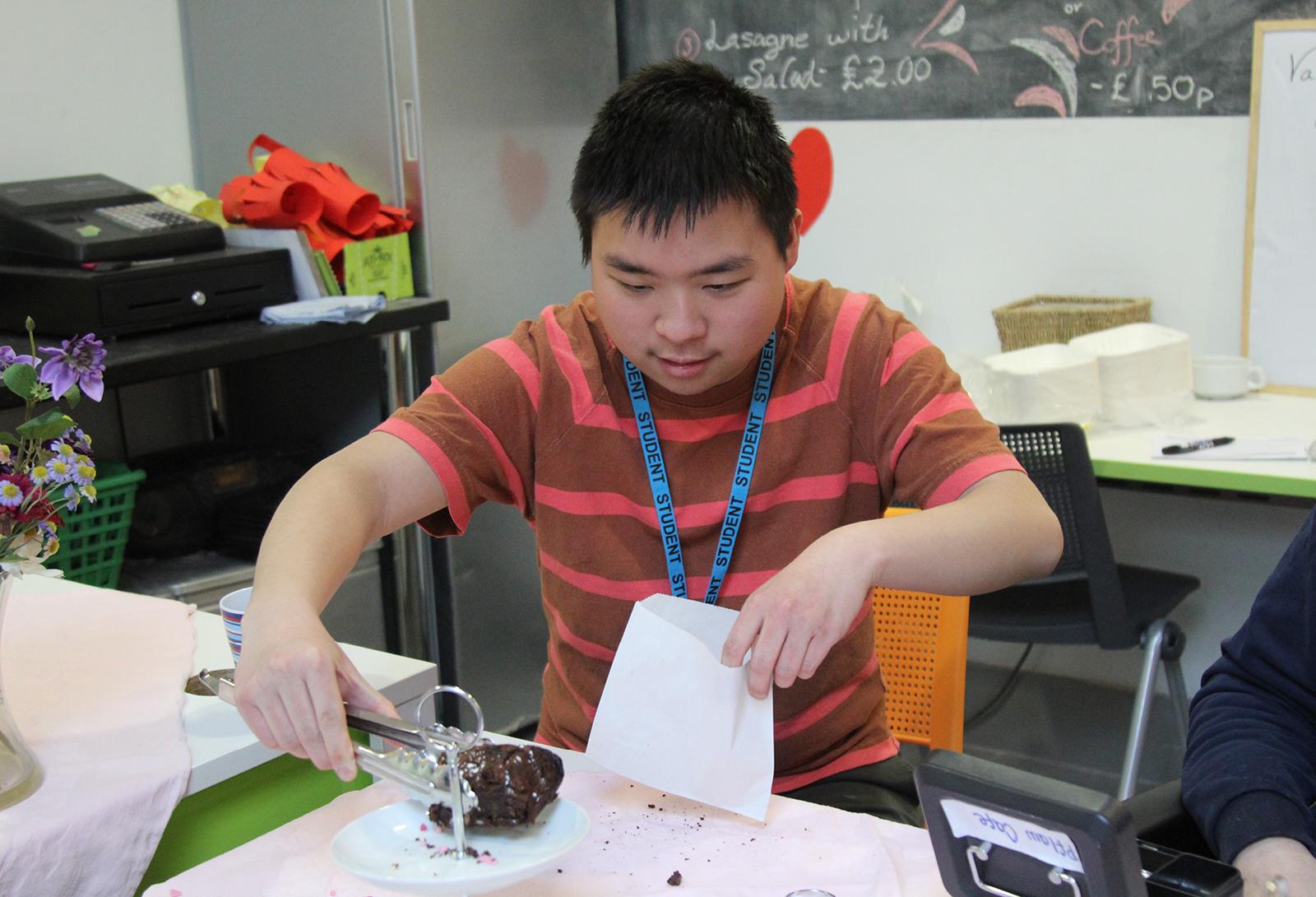Free online learning for adults: click here
Free online learning for adults: click here


A student within Nescot’s Foundation Learning department has described how studying at the college has given him the skills and confidence to get a part-time job.
Theo, a student on the Entry Level 3 Further Education Pathway, is now working at a café in Kingston on his day off from college.
He said his two years of studying at Nescot, including studying catering, have given him skills in preparing food and working in a team, as well as travelling independently.
“I have done a lot of different things at Nescot, so that means I have learnt a lot,” Theo said. “If I hadn’t done those things I wouldn’t be able to do my job.”
Theo has additional needs including autism, and he joined Nescot in 2021 from special school Carew Academy.
He initially studied at Entry Level 2, and progressed to Entry Level 3 in September. He is hoping to join an Entry Level 3 Customer Service and Hospitality and Catering next year, and dreams of working at London Transport Museum one day.
At his part-time job, Theo’s duties include clearing tables and washing up. He said the experience of having a job has also made him more confident, which in turns means he participates more at college.
“I like my job, and I want to keep working,” Theo said. “It’s a really nice place to be, and they help me with what I need to do.”
Theo said his favourite part of his Entry Level 2 course was cooking, and this year he has enjoyed learning about construction, business, and horticulture.
Students also focus on their personal development and social skills, which includes units such as Effective Communication, Working as Part of a Team, and Planning for Progression.
“We are very proud of Theo for meeting his goal of getting a part-time job,” said Slavina Kalendzhieva, Head of Foundation Learning.
“Theo has worked really hard and enjoyed his time at Nescot so far, and we look forward to continuing to support him.”
The Foundation Learning department offers a range of courses for students with learning difficulties, or who left school with few formal qualifications.
The aim of the pathway courses are to prepare students for a life after college, and to improve their life chances and choices. Students are assessed to ensure they join at the right level and can progress.
The curriculum has been developed to give students a clear pathway through the department to further education, employment, or supported living, according to their needs.